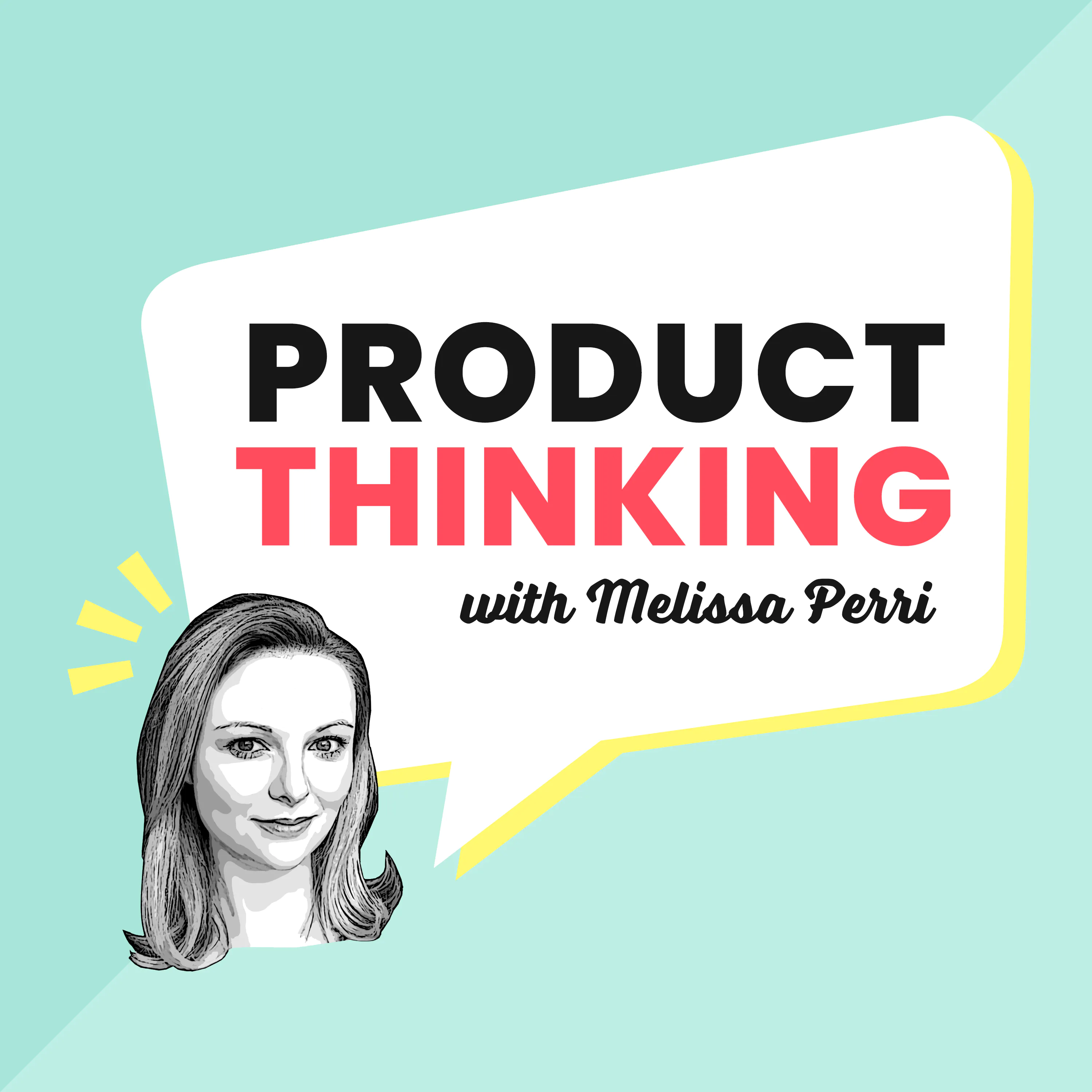Episode 130: Product Management in the AI Era with Hubert Palan, Founder and CEO of Productboard
August 2, 2023

In this episode of Product Thinking, Hubert Palan, Founder and CEO of Productboard, joins Melissa Perri to dive into the ever-changing role of product management and how it is influencing the technology industry. They also touch upon current events in the tech world, including AI, and how they may be shaping product management practices.
In this episode of Product Thinking, Hubert Palan, Founder and CEO of Productboard, joins Melissa Perri to dive into the ever-changing role of product management and how it is influencing the technology industry. They also touch upon current events in the tech world, including AI, and how they may be shaping product management practices.
Hubert is a versatile entrepreneur, product maker, mentor, and angel investor. He founded Productboard, the top customer-centric management platform that accelerates product delivery. Trusted by 6,000+ customer-driven companies like Zoom, UiPath, JCDecaux, and Microsoft, Productboard helps teams understand user needs, prioritize development, and unite everyone behind the roadmap. Previously, Hubert served as VP of Product Management at GoodData.
If you enjoyed this episode, make sure to subscribe, rate, and review it on Apple Podcasts, Spotify, and Google Podcasts; instructions on how to do this are here.
You’ll hear them talk about:
- [05:18] - The tech industry has recently moved from an era of abundance and experimentation to a more focused approach. Companies now prioritize efficiency and concentrate on profitable segments with proven market needs. This shift often leads to a narrowed portfolio and potentially fewer employees. Such trends are natural during economic downturns, but companies tend to rebound when conditions improve, as seen in the experiences of giants like Adobe, Microsoft, Salesforce, and Intuit during the 2008 recession.
- [08:40] - Every business lies on three key factors that drive success: revenue, cost, and risk. Limited resources demand a sharper focus on the core business, enabling better product management. Identifying crucial pain points, target markets, and superior product offerings becomes paramount. To thrive, you must excel at understanding customer segments, their willingness to pay, and the value your product brings compared to alternatives. Therefore, adaptability and expertise in these areas are now more critical than ever.
- [17:50] - As a product manager, it's vital to have a solid education and trust in your instincts, but it's equally important to back those instincts up with customer interactions and market research. Finding a balance between precision and efficiency is key, and you can leverage the experience of your team members to avoid redundant efforts. Open communication among leadership is crucial to sharing essential context. Conducting workshops can help facilitate understanding, and team members should actively seek guidance from seasoned mentors. By working collaboratively, you can ensure optimal outcomes for your company and its products.
- [37:50] - The economy's ups and downs are influenced by various factors, industries, and perspectives. To thrive, mastering product management and strategy is crucial. Despite exciting technological advancements, the key is applying them effectively to different segments and prioritizing resources. Long-term success demands differentiation and foresight, focusing on elements that remain relevant over five to ten years. In the competitive AI landscape, a strong product strategy is essential for survival and standing out from the crowd.
- [40:50] - AI's emergence is reshaping product management, and PMs must ask the right questions to use AI as a reliable tool to guide decisions. However, critical thinking remains essential to uncover unique insights and find valuable opportunities. While AI can improve existing products, it may not discover entirely new market needs. Project managers should view AI as an asset, not a replacement, and leverage it for incremental improvements while relying on human creativity for true innovation.
Episode Resources:
If you enjoyed this episode, please visit:
Previous guests include: Shruti Patel of US Bank, Steve Wilson of Contrast Security, Bethany Lyons of KAWA Analytics, Tanya Johnson Chief Product Officer at Auror, Tom Eisenmann of Harvard Business School, Stephanie Leue of Doodle, Jason Fried of 37signals, Hubert Palan of Productboard, Blake Samic of Stripe and Uber, Quincy Hunte of Amazon Web Services
Check out our Top 3 episodes:
Check out our Top 3 episodes:
- Episode 177: The Evolution of User Research: A Conversation with Steve Portigal, Author of Interviewing Users
- Tackling Product Research with C. Todd Lombardo
- Episode 128: Scaling Product Operations with Blake Samic, Former Global Head of Product Operations at Stripe and Uber
Product Thinking is handcrafted by our friends over at: fame.so
Product Thinking Guest and Audience Podcast Feedback Form
Product Thinking Guest and Audience Podcast Feedback Form